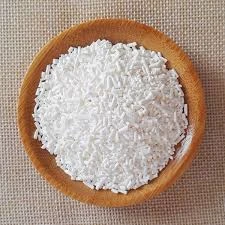
Understanding E330 as a Food Additive and Its Implications for Health
Understanding E330 A Detailed Look at Citric Acid as a Food Additive
Food additives play an essential role in enhancing our culinary experiences, preserving food quality, and ensuring safety in consumption. Among the myriad of food additives available today, E330, commonly known as citric acid, is one of the most widely used. This essay explores what E330 is, its sources, applications, health implications, and future prospects in the food industry.
What is E330?
E330 is the European food additive number assigned to citric acid, a weak organic acid that occurs naturally in citrus fruits. It was first identified in lemon juice in the late 18th century. The acid can also be produced through fermentation processes using certain molds, such as Aspergillus niger, making it a cost-effective solution for various industries. With its sour taste and natural origins, citric acid has become a staple in kitchens and food production facilities alike.
Applications of Citric Acid in Food
The versatility of citric acid is one of the primary reasons for its popularity in the food industry. Here are several key applications
1. Flavor Enhancer Citric acid is often added to foods and beverages to provide a tart flavor that can balance sweetness, making it particularly popular in soft drinks, candies, and sauces.
2. Preservative E330 inhibits the growth of bacteria and molds, prolonging the shelf life of various products. It is commonly used in canned goods, jams, and jellies, ensuring that these items remain safe and tasty for longer periods.
3. pH Regulator The acidity of citric acid helps to control the pH levels in food products, which is crucial for maintaining flavor stability and enhancing the effectiveness of other preservatives. This control is vital in products ranging from dairy to baked goods.
e330 food additive

4. Antioxidant As a natural antioxidant, citric acid helps in preventing the oxidation of food, which can lead to rancidity and spoilage. This property is particularly beneficial in oils and fats.
Health Implications
Citric acid is generally recognized as safe (GRAS) by food safety authorities worldwide, including the U.S. Food and Drug Administration (FDA) and the European Food Safety Authority (EFSA). When consumed in normal dietary amounts, citric acid poses minimal health risks. However, excessive consumption may lead to gastrointestinal discomfort, such as stomach upset or acid reflux, especially in sensitive individuals.
Furthermore, while citric acid is safe for most, it is essential to note that concentrated forms may cause irritation. This means that food manufacturers must adhere to specific guidelines regarding its use to prevent potential harm from high concentrations. Overall, for the average consumer, citric acid is a benign additive that enhances flavor while providing other useful functionalities in food preservation and safety.
Future Prospects
As consumers become more health-conscious and demand cleaner labels, the use of additives like E330 will likely continue to evolve. The trend towards natural ingredients could see a rise in the use of citric acid sourced directly from fruits, coupled with transparency in sourcing practices. Moreover, innovative applications, such as utilizing citric acid in plant-based products, could enhance both flavor and preservation, aligning with market demands for sustainable ingredients.
Researchers are also exploring the potential of citric acid in food science, particularly in the formation of biodegradable packaging materials and its role as a natural preservative in meat and dairy products. This continued investigation will not only diversify its applications but could also help reduce the reliance on synthetic preservatives, paving the way for a more sustainable approach to food safety.
Conclusion
E330, or citric acid, is a multifaceted additive that enhances food quality and safety while delivering a tangy flavor that consumers love. Its wide-ranging applications and natural origins make it a preferred choice in the food industry. As we look to the future, citric acid will likely remain a vital ingredient in food manufacturing, reinforcing its role in a sustainable and health-conscious food landscape. With ongoing research and innovation, the prospects for citric acid in enhancing our food experiences are as bright as the fruit from which it originates.
-
Pure Sodium Dichloroisocyanurate Dihydrate | Powerful DisinfectantNewsAug.29,2025
-
Industrial Chemicals: Quality & Purity for Every IndustryNewsAug.28,2025
-
Nitrile Rubber Honoring Strict Production StandardsNewsAug.22,2025
-
Aspartame Ingredients Honoring Food Safety ValuesNewsAug.22,2025
-
Fertilizer for Balanced Plant NutritionNewsAug.22,2025
-
Cyanide Gold Processing with High Purity AdditivesNewsAug.22,2025
-
Formic Acid in Textile Dyeing ApplicationsNewsAug.22,2025
Hebei Tenger Chemical Technology Co., Ltd. focuses on the chemical industry and is committed to the export service of chemical raw materials.
-

view more DiethanolisopropanolamineIn the ever-growing field of chemical solutions, diethanolisopropanolamine (DEIPA) stands out as a versatile and important compound. Due to its unique chemical structure and properties, DEIPA is of interest to various industries including construction, personal care, and agriculture. -

view more TriisopropanolamineTriisopropanolamine (TIPA) alkanol amine substance, is a kind of alcohol amine compound with amino and alcohol hydroxyl, and because of its molecules contains both amino and hydroxyl. -

view more Tetramethyl Thiuram DisulfideTetramethyl thiuram disulfide, also known as TMTD, is a white to light-yellow powder with a distinct sulfur-like odor. It is soluble in organic solvents such as benzene, acetone, and ethyl acetate, making it highly versatile for use in different formulations. TMTD is known for its excellent vulcanization acceleration properties, which makes it a key ingredient in the production of rubber products. Additionally, it acts as an effective fungicide and bactericide, making it valuable in agricultural applications. Its high purity and stability ensure consistent performance, making it a preferred choice for manufacturers across various industries.





